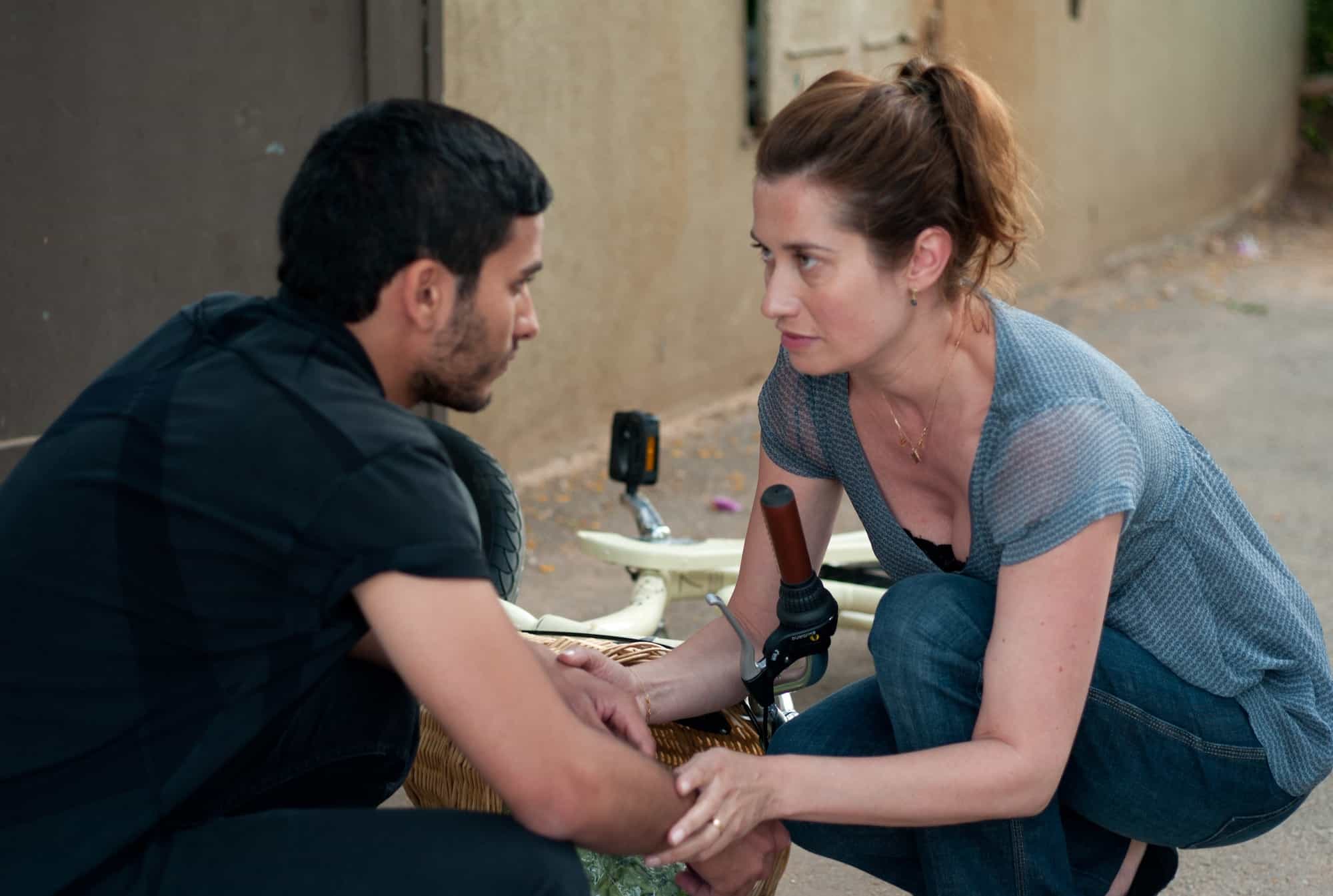In operation since 1978, the Toronto Jewish Film Society (TJFS) is the longest running Jewish film society in North America. Each year, it screens eight films as part of a subscription service available to members.
The selections range from Jewish dramas, comedies, and documentaries, covering topics of Jewish interest, which include culture, identity, Israel, and the Holocaust.
The Other Son, directed by France’s Lorraine Lévy, was the first film to be screened in this year’s series. Set against the often divisive political backdrop of Israel and Palestine, Lévy uses the common ‘switched at birth’ parable to make a powerful statement on the nuances of cultural identities and the strength of familial bonds and coexistence.
Upon first glance, the premise of the film is intriguing. Two babies born at the same time in a hospital in Haifa, Israel are accidentally switched by nurses in the chaos that results from a bombing attack on the same night. The boys grow up in opposite worlds, their true identities unknown to both sets of parents.
Joseph is artistic and dreamy, living in Tel Aviv with his father, a high-ranking Israeli army officer, and mother, a French-born doctor.
In stark contrast to Joseph’s sheltered and privileged upbringing, Yassin is more determined, a future medical student raised by an Arab couple living in the West Bank.
The two boys only learn that they have been switched at birth when Joseph, during routine medical testing before drafting into the Israel Defence Forces, discovers his blood type does not match his family’s.
Tensions centered on this clash of cultures are prevalent throughout the film as the characters struggle with their personal identities, religions, and relationships with their family members.
The stand-out performances in the film come from the two mothers, delivered with heartbreaking emotional depth by Emmanuelle Devos and Areen Omari. While they struggle to accept that their sons are not biologically their own, they put aside their personal feelings to bring together two divided families, united only by their unconditional love for their sons.
These themes seem to comprise a message that Lévy has woven throughout the film: that despite political, religious, and cultural divisions, people can still form connections based on common human experiences and understanding.
All film screenings by TJFS are introduced and discussed by select noted speakers and accompanied by a question and answer period at the end of the film. The Other Son was led by guest speaker Adam Nayman, a film critic and author who completed his MA in Cinema Studies at U of T.
The audience’s reception of the film was largely positive. Many praised how the director gave equal attention to both households and was unbiased in the film’s portrayals of Israel and Palestine, instead focusing on the humanity of relationships and identity within both families.
When asked how the film was chosen, Esther Arbeid, Manager of TJFS, wrote, “The Other Son came to us from our marketing director at [the Miles Nadal Jewish Community Centre (JCC)] who had seen… the movie in Belgium last summer and thought that it would be a great fit for our program. Once our committee viewed it, they agreed unanimously.” The programming committee consists of volunteer curators and is led by Arbeid.
On how the movie was perceived by the audiences at JCC, Arbeid said, “The audiences seemed very receptive. The comments were overwhelmingly positive.” She added, “The Q and A for The Other Son was more cohesive than usual… the discussion was more about cultural identity than anything else.”
The almost unanimous positive reception is likely due in part to the film’s lack of direct reference to or biased portrayal of the turbulent political situations of the Middle East.
Arbeid commented, “[The director] focused on the plights of the main characters, the Israeli and Palestinian mothers’ and the sons’ perspectives drove the story. The whole idea of the ‘other’ was drawn forward to present both sides, both situations evenly — to make it a balanced story told from a torn region.”
The next film in the TJFS lineup is None Shall Escape, a vintage WWII drama first released in 1944. It will be screened at the Al Green Theatre on February 26.


